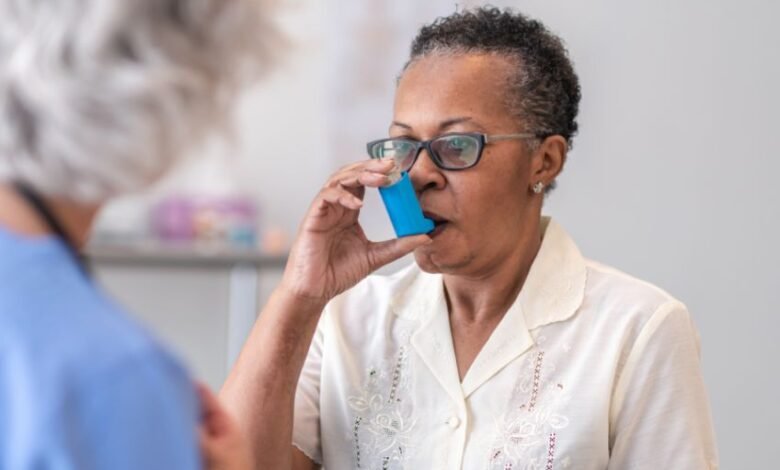
Although many people with asthma experience side effects early on, they expect to improve their condition over time. According to the Centers for Disease Control and Prevention, asthma attack affects almost 7% of adults over 65.
This is a common misconception that asthma can be “cured” in children. Asthma may go into abatement and then come back in the r later on. No matter how old or young you are, asthma can cause side effects. This condition can cause tightening and expansion of the airways, which can make breathing difficult. It can lead to wheezing or hacking and can leave individuals with a lower level of inclination. Breathing is known as asthma infection Iverheal 6 and Iverheal 12 are the best pills to stop breathing problems.
Asthma Risk Factors
Some people who had asthma as a child, perhaps because of a respiratory condition like pneumonia, are more likely to develop asthma later in life. A history of asthma in the family or past with sensitivities are other factors that can contribute to lung issues. Asthma is also more common in people who smoke and those who live in urban areas.
Lifestyle Improvements to Lower Asthma Severity
It is possible to continue living a happy life with asthma. If you do have asthma, your group of experts can help you to ensure that you are aware of your side effects and take your medication, while still enjoying the things you love in your daily life. You can modify your routine to improve your health and wellbeing, as well as decrease the severity of asthma side effects.
Eat Well
Foods high in flavonoids, such as berries, kale and grapes, are recommend to have strong mitigating and hostile effects on hypersensitive reactions. It is not clear if there is a link between eating well and improvement in asthma. However, taking a lot of supplements may help your body fight against respiratory conditions that could lead to asthma attacks. You can use Iversun 6 or Iversun 12 medicine to get rid of your disease called asthma.
Reduce allergens and triggers
You can make small and big life changes to reduce allergens and triggers. You can reduce the use of scented candles and other aromas in your home to help prevent asthma attacks. You should also stop smoking. It can reduce your chance of developing asthma. Asthma can be triggered by smoking.
Mindful Meditation
As we age, unpleasant circumstances can become more common and may trigger asthma attacks. You can reduce the severity of asthma attacks by using thoughtful reflection techniques, such as continuing to quieten words and expressions.
Treatment of Asthma in Older Adults
If you believe you may have asthma, you should talk to your primary care physician. They might refer you to a pulmonologist, sensitivity and immunology-trained professional. After that, you’ll be tested for asthma and your primary care physician will create a treatment plan.
Although there is no cure for asthma right now, it can treat. It is important for anyone with asthma, especially older adults, to be aware of this. For more experienced asthma patients, such as those with respiratory failure, there are greater dangers. This may sound alarming but it is essential that you have your primary care physician familiar with your condition. Your asthma can manage and you can feel your best.
Get information about medications and treatments.
The condition that you are seeing your pulmonologist about may be complex and require multiple medications. There are many phases and types of cell breakdown in the lungs. This may require different treatment options. Ask your PCP about your current treatment plan and what they think it is (or isn’t) working for you. Also, let them know how you feel about your ongoing care. Is there anything your PCP feels you need to change or are you happy with the way you are doing on your current treatment? These are your thoughts? Also, make sure to get information on what exercise and diet mean for you. Is your pulmonologist recommending changes?
It’s an ideal goal to make it a point to visit your next pulmonologist appointment and learn more about your wellbeing. Talking with your list of questions is a great way to get to this goal and feel your best.




